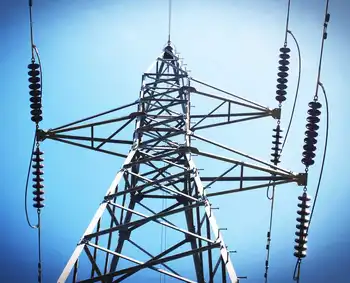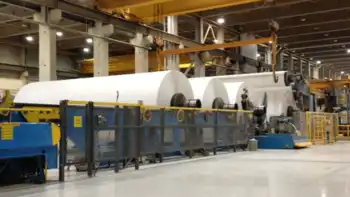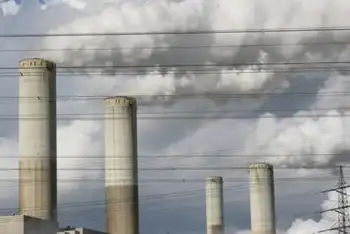The woman behind Areva
By International Herald Tribune
Protective Relay Training - Basic
Our customized live online or in‑person group training can be delivered to your staff at your location.

- Live Online
- 12 hours Instructor-led
- Group Training Available
"I discovered it was a lot of dirt, dirty hands, and crawling around on all fours," Lauvergeon, now 48, said in explaining how her interest had shifted from the past to the future.
She now runs the French nuclear energy company, Areva.
Her long path from dirty hands to the corporate suite took some unexpected turns, leaving her one of the most powerful women in French business. An autonomous streak showed up early.
"I worked in the summer when I was 15 or 16," she said, a rarity among French young people. "I wanted to be independent."
In recent years, nuclear energy risked becoming part of the past, as countries around the world, like the United States, Germany and Japan, refrained from expanding the stock of nuclear power plants they had or, if they had none, like Italy and Poland, refused to plunge into the nuclear age. But the business of nuclear energy has come alive again, and it is people like Lauvergeon who are changing it.
With the volatile cost of carbon fuels, like oil and natural gas, and the need to reduce the level of greenhouse emissions that cause global warming, the promoters of nuclear energy have gone into action. Companies like Westinghouse, General Electric and Areva, which design and build nuclear power plants, are fishing for contracts and landing them in Asia, including China, where nuclear energy is expected to play a large role. Now they are setting their sights on developed countries in the West, like Britain, Germany, the Scandinavian countries and the United States.
"It's not expensive, and the costs are totally predictable," Lauvergeon said in her office in a meticulously restored Art Deco building in the center of Paris. "The cost of uranium is only 5 percent of your costs."
Moreover, she said, nuclear energy created no foreign dependence for fuel and produced no greenhouse gases.
Nuclear power is becoming a case study in globalization, as more countries are induced to include it in their energy plans and to pay other countries for the technology they need.
"A nuclear renaissance is now gearing up everywhere in the world," said John Ritch 3rd, a former U.S. diplomat who is director general of the World Nuclear Association, an industry association. "It is occurring parallel to an enormous expansion in energy consumption."
Of course, not everyone likes the idea of more nuclear energy.
"Currently there is no safe way to deal with radioactive waste," said Nathan Argent, who follows the industry for Greenpeace, one of many anti-nuclear groups. Such groups argue, moreover, that the spread of nuclear technology leads to the proliferation of atomic weapons.
Some governments heed their anti-nuclear constituencies. Germany, once a leader in nuclear energy, is committed to dropping nuclear energy by 2020; Sweden is similarly committed to phasing out its nuclear plants by 2010.
But Lauvergeon is talking about the benefits of nuclear energy as a clean and, she argues, safe alternative to carbon fuels. She highlights Areva's experience in converting spent fuel into mixed oxide, or MOX, pellets, that can be burned in nuclear reactors.
She can speak with conviction because France, unlike most of the world, never backed away from atomic power. About 80 percent of the electricity used in France is generated by nuclear plants.
The new government of President Nicolas Sarkozy is giving Lauvergeon a helping hand. In addressing the United Nations and on trips to countries in the Mediterranean basin, notably Libya and Morocco, Sarkozy has pushed French nuclear technology.
Lauvergeon is emphatic that Areva is not in the business of proliferation. "Without ambiguity, we don't accept to do business with countries that don't accept, without doubt, international controls," she said.
In the first nine months of 2007 Areva had $11.6 billion in revenue, 6.8 percent more than a year earlier, building power plants but also mining and processing uranium and disposing of spent fuel. Its order book in the first half of the year rose 30 percent to $45 billion. It is building two power plants, using the latest design, known as a European pressurized water reactor, in France and in Finland. She expects to sign contracts for two more in China.
Lauvergeon faces strong competition, primarily from Westinghouse, GE and the Russian reactor builder, Atomstroyexport. Westinghouse is now part of Toshiba, and GE operates in cooperation with Hitachi. But Areva is arguably the leader in building nuclear plants in recent years.
Lauvergeon notes that Areva is taking the competition to the Westinghouse home turf, having established a joint venture with Constellation Energy, a Baltimore utility, to sell its power plants in the United States. It is also cooperating with Électricité de France, the French utility, to penetrate the American market. Her sales pitch? "Eighty percent of value should be American," she said. "We want to reinstate the nuclear industry there, which almost disappeared."
Areva has 6,000 employees in the United States, she said, and is constantly training more.
Lauvergeon grew up in Orleans, in the heartland of France, where her father was a professor of geography, though her interest in the past gradually made way for studies at university in chemistry and physics and to a degree from the École des Mines in Paris, an elite engineering school.
After graduation she worked for several French companies, including Usinor, the steel company that is now part of Arcelor Mittal. In 1995, she became a partner in Paris at Lazard Frères, spending several months at the investment bank's New York office.
Lauvergeon assembled Areva in 2001 from the bickering factions of the state-owned nuclear establishment, the fuel company Cogema and the reactor builder Framatome, creating what can ben considered the only one-stop nuclear shop, selling uranium, reactors, fuel reprocessing and waste storage.
It was around that time that she first visited a nuclear reactor. "It was clean, very modern, and I was impressed by the idea that a tiny amount of uranium produced a huge amount of energy," she said. And this, she added, despite her being at the time, "very écolo," French shorthand for environmentalist. To blunt green criticism, she invigorated Cogema's communications policy.
"We were ready to discuss, and not only with our friends," she said. "It was tested. We won."
"At the time, many said we had no future," she went on. "I said, 'We have a future, and we should invest.' In this new situation, we're very attractive."
Now Areva needs cash to grow, and the French government is considering all options, including selling shares in Areva. Less than 5 percent of the company trades on the Paris exchange, via nonvoting investment certificates. A merger with the French turbine maker Alstom is possible. This likelihood has lifted Areva shares more than 50 percent over the past year. Lauvergeon said she favored "an opening of the capital, with one or two industrial partners."
The centerpiece of Lauvergeon's sales pitch is the European pressurized water reactor, and Areva is building the first of its kind in a dark pine forest in Finland. But the Finnish project is years behind schedule with cost overruns reported to be as high as $1 billion. Lauvergeon said Areva did not publish the provisions it makes for such losses, but she confessed that Areva was unlikely to make money on the project.
"It won't be profitable," she said. "It's an investment, an incredible show window."











